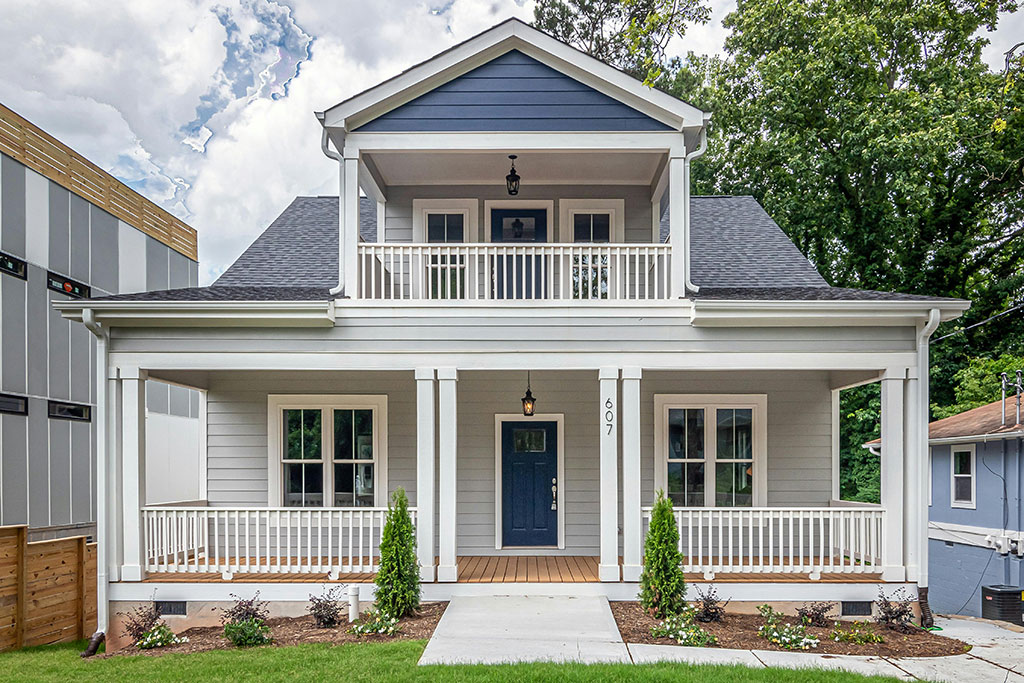Top 5 Mistakes to Avoid as a First-Time Homebuyer
Buying a home for the first time is a huge milestone, and once you’re no longer sharing walls with a neighbor, you’ll never want to go back.
But the process can be long and complicated, making it important that you approach each step carefully to ensure that you navigate it successfully and land the home of your dreams. To help you on your journey, here’s a look at five of the top mistakes first-time homebuyers make and what you should do instead.

Rushing the process
While you may be eager to have a place of your own, be sure to take your time, especially at the beginning. Before you even begin browsing on sites like Zillow, you’ll want to first save for the different homebuying costs, such as a down payment. Give yourself at least a year to do so, and also focus on improving your credit and paying down debts to boost your chances of getting better terms for your mortgage. Such preparation may help you avoid draining your savings when you do find your dream home.
When you’re ready to begin your home search, reach out to a real estate agent, who can walk you through each homebuying task and provide information on additional expenses, such as private mortgage insurance, to ensure that you don’t overlook anything critical. Just as importantly, work on getting preapproved with a mortgage lender so you know how much you can realistically afford. This will give your agent a clear idea of what homes to show you within your budget. Preapproval may also demonstrate to sellers that you have the funds necessary to back up any offers you make.
Not budgeting for additional costs
When preparing their savings and planning their anticipated household expenses, one of the most common mistakes first-time homebuyers make is getting too focused on the down payment and monthly mortgage payments. While those are major costs to plan for, there are many others involved in the process you don’t want to be caught unaware of. For instance, closing costs, including appraisal fees, inspection fees, and attorney fees, are typically 3 to 6 percent of the loan amount—a not insignificant number.
On top of that, as a new homeowner, you’ll need to pay for maintenance, repairs, property taxes, and utilities, which are often higher than what you paid as a renter. To avoid putting yourself in a financial bind, make sure to factor in these extra costs when determining how long and how much you should save before beginning the homebuying process and how to structure your future budget.

Only looking at the house
Too often, buyers fall so in love with a house that they fail to look at anything else, such as the neighborhood, school district, or local amenities. However, if you’re planning to live in your home for many years, you’ll want to confirm it’s in a location that suits your lifestyle and needs. When evaluating a potential home, look into the quality of the neighborhood by visiting at different times of the day to see how busy traffic may be and talking to potential neighbors to get an idea of what it’s like to live in the area. If you have children or plan to have them in the future, check which schools the neighborhood is zoned for and how well they’re rated; your agent can point you toward reliable and detailed resources to help you conduct your assessment.
In addition, consider the proximity to essential locations like grocery stores, hospitals, and public transportation stops as well as local recreational opportunities like parks and restaurants, which can greatly enhance your quality of life. If you work on-site somewhere, calculate your potential commute times by driving the route at various points throughout the day. By weighing these components in addition to the house itself, you can make a more informed decision and ensure long-term satisfaction with your new home and the area it’s located.
Skipping a home inspection
Though you may be tempted to forgo the home inspection to save money or speed up the buying process, this mistake could cost you in the long run. A professional home inspection can protect you as a buyer by revealing issues with the property that might not be visible during a normal walkthrough. These can range from minor repairs (e.g., loose doors or missing handles) to major structural problems (e.g., a cracked foundation) that could cost thousands of dollars to fix. Always invest in a home inspection before finalizing the purchase, and consider making it a contingency within your sales contract. If significant problems are found, you may be able to negotiate with the seller for repairs or a reduction in the sale price.
Letting emotions drive your decision
Buying a home can be an emotional process, especially once you start imagining all the memories you’ll make in your new space. It’s easy to get overly attached to a property and make a hasty decision; however, letting your emotions drive your purchase can lead to regret later. Instead, do your best to remain objective and consider all the practical aspects of the home, such as its condition, location, and price. This is a huge financial commitment, after all, so take a moment to compare different properties and weigh the pros and cons of each. By keeping your emotions in check and making a well-informed decision, you’re more likely to find a home that you’ll be happy with for years to come.
As you’re preparing to purchase your first home, take your time and be sure to work with a trusted real estate agent throughout the process. This can help ensure that you find the right home for your lifestyle and budget.


















